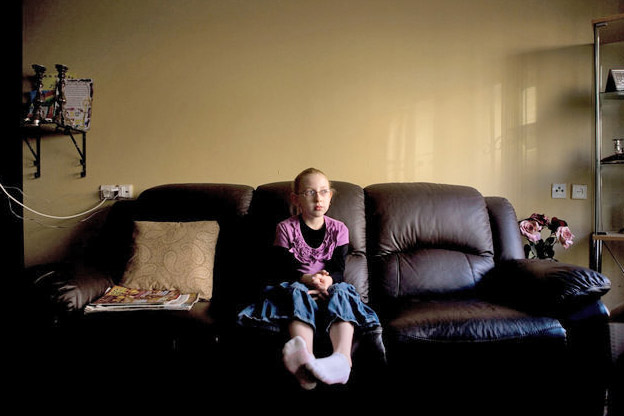Australia/Israel Review
A little girl, a major storm
Jan 25, 2012 | Amotz Asa-El

Amotz Asa-El
While the rest of the world was following American military retreats, European economic meltdowns, and Middle Eastern bloodbaths, Israel was agog over one eight-year-old girl’s five-minute walk to school every morning.
Frail, bespectacled, and shy, Naama Margolese appeared on TV and said she refused to go to her school in the town of Beit-Shemesh after local ultra-Orthodox men spat and shouted “prostitute” at her while she walked the short distance from her home to school. Though she is religiously Orthodox, and wears a skirt and long sleeves, her standards of modesty did not meet those of her attackers.
Naama’s shaken mother called the issue to the media’s attention. The prime-time TV item that resulted shocked the country, and the girl was summarily escorted to school by police, while her mother was seen on the nightly news saying: “We are winning.” Her euphoria may have been premature.
Just off the Tel Aviv-Jerusalem highway and about halfway between the two, Beit Shemesh was originally a working-class town populated mainly by the moderately traditional immigrants who arrived in Israel in the 1950s. Subsequent arrivals of secular immigrants from the former Eastern Bloc, and of modern-Orthodox professionals from English-speaking countries, like Naama’s parents, saw the city expand largely in a merrily pluralistic way.
That spirit of reconciliation became seriously threatened after the municipality decided to build neighbourhoods for ultra-Orthodox populations, which soon attracted, among others, some of that community’s most radical elements. Consequently, while its population swelled within three decades from fewer than 13,000 to more than 70,000, the city became the focus of turf wars whose origins and impact transcend the municipal context.
Behind the impulsive individuals who bullied Naama lurk more calculated communal leaders who want to put the city’s modern Orthodox community on the defensive by choking their educational system. And while the conflict in Beit Shemesh is an extreme case in terms of both its end and means, it is nonetheless only one of a growing number of flashpoints centring around Israeli ultra-Orthodoxy’s troubled relationship with Israel’s public space, with women’s place in society, and with modernity as a whole.
Some of the conflict is driven by vandals, like those who routinely tar or disfigure advertisement posters in Jerusalem bus stops that display women. However, the struggle has long been joined by respectable ultra-Orthodox leaders, who occasionally lead the clash into the thick of mainstream Israel’s secular routine.
For instance, Deputy Health Minister Yaacov Litzman, who represents the ultra-Orthodox United Torah Judaism Party was supposed to grant a government prize to Professor Hanna Maayan, a senior pediatrician at the prestigious Hadassah Hospital. When Prof. Maayan arrived for the ceremony she was astonished to learn that she was not to personally go on stage to receive her prize from the Deputy Minister, and was asked to have a male represent her instead.
Meanwhile, out on the streets, the national bus company, Egged, heeded ultra-Orthodox pressure and, from 2001, introduced special buses for the ultra-Orthodox population that split the vehicles between the sexes: men in the front, women in the rear. In some ultra-Orthodox neighbourhoods cashier lines in shops have been separated, and in some places there have even been attempts to dedicate separate sidewalks for each of the sexes.
On another front, taking literally a Talmudic saying that a woman’s voice is part of her nakedness, some observant combat soldiers recently walked out of a concert featuring female singers that their battalion was to attend by its commander’s order. The incident made the Israel Defence Force’s (IDF) Chief Rabbi, Brig-Gen Rafi Peretz, order observant soldiers to participate in such events even if they are religiously disagreeable to them. Responding to the Chief Rabbi’s order, the Air Force’s Chief Rabbi resigned from his position as coordinator of the IDF’s program for integration of ultra-Orthodox soldiers.
As could be expected, the accumulation of these events has triggered a backlash.
Back in Beit Shemesh, thousands of modern-Orthodox, traditional, and secular demonstrators gathered to rally against the people who harassed Naama Margolese in particular, and what they saw as ultra-Orthodox expansionism in general. At the same time, in the coastal city of Ashdod south of Tel Aviv, 28-year-old Tanya Rosenblit, a communications student, entered a partitioned bus to Jerusalem and took a seat in the men’s section, just behind the driver. One ultra-Orthodox passenger took issue with her, but she stood her ground, and the media made her a celebrity – comparing her to Rosa Parks, the black woman who in 1955 defied Alabama’s racial segregation by refusing to give up her seat to a white passenger.
Rosenblit’s defiance was soon emulated by numerous women’s rights activists, who began to board partitioned buses deliberately in order to sit in the men’s section. Even so, all agree that the analogies to the American South, while sexy, are unfounded, for two reasons: First, in the southern states the discriminated against were a minority, whereas in Israel it is the majority that feels attacked by a segregationist minority whose share in the overall population is less than one tenth, and even within that small group many oppose the misogynist trends that provoke the rest of society. And secondly, the ultra-Orthodox say they only care about their own communities’ bus rides, but are not seeking to challenge the rest of the country’s lifestyle, including on the vast majority of public transport. Secularists respond that buses are part of the public domain, especially those run by Egged, which is subsidised by the taxpayer.
This secularist argument is supported by Israel’s High Court, which ruled in January 2011 that all enforced segregation of public buses was illegal, but allowed a one-year trial of a scheme which allowed voluntary segregation, provided each bus display signs stating that passengers are permitted to sit wherever they choose and harrassing passengers regarding this matter could constitute a criminal violation.
Moreover, say its adversaries, what begins with ultra-Orthodoxy’s siege on its women then becomes a struggle to expand its turf, as in Beit-Shemesh, whence it proceeds to an encroachment on the secular public space, as in the quest to challenge women’s singing in the army and in the effective eviction of an award-winning woman scientist from a stage just because she would otherwise be expected to shake a man’s hand and face a male audience.
Despite all this, the ultra-Orthodox struggle to relegate women to society’s backseat may well be a rear-guard action.
For one thing, outside the narrow confines of ultra-Orthodoxy, Israeli women, both secular and modern Orthodox, are among the most liberated, educated, and accomplished in the world. They are omnipresent in academia, the courts, the media, hi-tech, and politics, heading anything and everything, from the Supreme Court and two of Israel’s largest banks to the largest opposition party, as well as the IDF’s human resources operation, by far the largest employer in the country.
Though such roles remain unthinkable for ultra-Orthodox women in Israel, the ultra-Orthodox male’s dominance of their lives is steadily eroding. The demands of livelihood are such that ultra-Orthodox men increasingly seek jobs, thus compromising their communal quest to dedicate men’s lives to religious study, while ultra-Orthodox women increasingly go beyond their common jobs as low-paid teachers. Instead, a growing number of these women study computer programming, accounting, and even law. Others go from ordinary teaching into educational management positions.
Some believe it is this upward mobility of their women that is actually driving ultra-Orthodox men to seek to keep their women in the backseat, metaphorically and literally.
Just where all this leads in the long run remains to be seen, but for the time being the ultra-Orthodox effort to relegate women to the backseat has provoked the rest of the country in a way ultra-Orthodox leaders did not plan, and also cannot afford.
When the Beit-Shemesh story broke out, Israeli Prime Minister Benjamin Netanyahu, ultra-Orthodoxy’s main secular political ally, took issue with them: “Women’s exclusion negates the spirits of Judaism,” he said. Ultra-Orthodox extremists may want to take issue with this statement theologically, but ultra-Orthodox politicians know that without government funds for religious seminaries, the ghetto walls they are seeking to cement and expand might collapse.
Politicians like Deputy Health Minister Litzman well recall how last decade, when ultra-Orthodox parties went too far in their demands from the viewpoint of the centrist electorate, then-premier Ariel Sharon left them out of his coalition in what initially seemed like a political gamble, but ultimately produced a very efficient government where Netanyahu served as Finance Minister. Litzman and his colleagues know Netanyahu remembers Sharon’s trick, and that if they allow their extremists to continue pushing women out of public life, someone might come along and push them out of the national budget.
Tags: Israel






